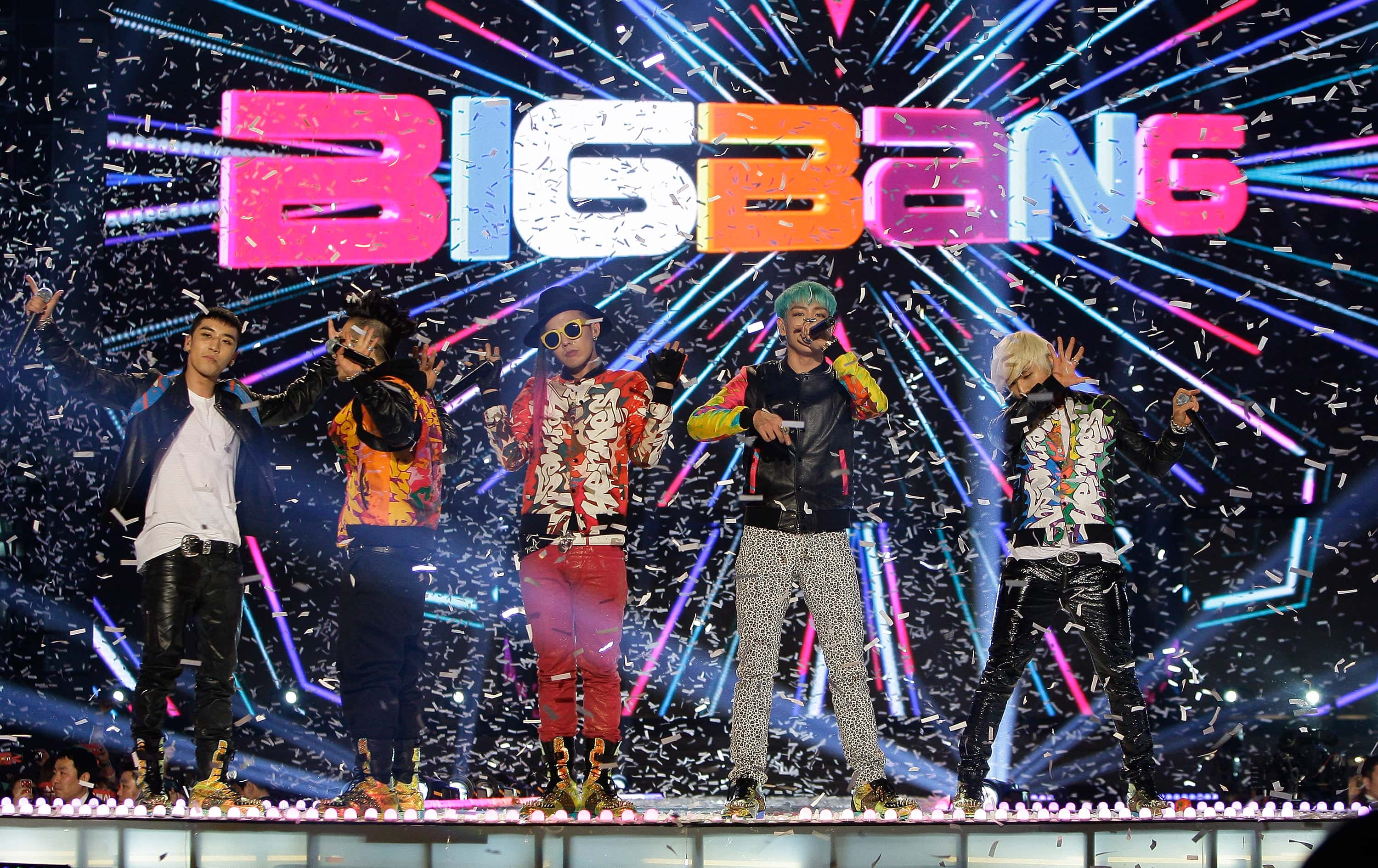'Coup d'Etat': How Big Bang's G-Dragon revolutionized his own sound and style to put K-pop on the map

Seven years ago on September 2, G-Dragon released the first part of his second full-length album, 'Coup d'Etat', with the second part dropping on September 5, followed by a full release on September 13. The album's release was accompanied by a music video for the title single of the same name and marked GD's shift from his earlier sound, evident in both his work with his group Big Bang as well as his first album, 2009's 'Heartbreaker'. The album itself would go on to be a critical and commercial success, in addition to being one of the most influential K-pop releases of all time, one that helped put the genre on the map.
Big Bang debuted in 2006 under YG Entertainment, during the YG Family 10th Anniversary Concert. Their first single, 'Big Bang', dropped soon after, and included the tracks 'We Belong Together' (featuring former labelmate Park Bom of 2ne1), 'A Fool's Only Tears', and a GD solo titled 'This Love' which was a reworked version of Maroon 5's song of the same name. The group would go on to drop two more singles, ending the year on a high with the release of their debut album, 'BigBang Vol. 1 – Since 2007'. The following year saw the group shift away from their hip-hop roots and layer more electronic music into their sound. GD took the reigns as far as composition and writing were concerned - a rarity in K-pop, even back then - and the group dropped their hit single, 'Lies'. The song earned Big Bang widespread acclaim. And from there on, the group would only continue to climb the ranks.

But what stood out about Big Bang wasn't their chart performance, it was their global impact. Known just as much for their musical experimentation and versatility as for their ability to self-produce and command a stage, Big Bang's success would lead to them being dubbed the 'Kings of K-pop', with the title of 'King of K-pop' being bestowed upon the group's leader, GD. While many groups had earned recognition outside of South Korea, Big Bang was one of the 'Hallyu' (or 'Korean Wave') acts that popularized the genre outside of the country. Their experimentation with both their music and their fashion helped set the standard within K-pop, and their impact on the entertainment industry is still visible even today. But when GD released 'Coup d'Etat', their influence shifted to something even greater than what it was before, so much so that the New York Times predicted that artistes in the Western world would soon be drawing inspiration from him after the release of the title song's music video. And they were not wrong in their assessment.
'Coup d'Etat' was one of the most visually stunning and complex videos to emerge out of K-pop. Sonically, this album was GD's attempt to bury his previous release and rise above it. In an interview with Complex, he shared that he no longer connected with 'Heartbreaker', believing his sound had evolved significantly from what it once was. He stated, "Now, I've been in the game for some time, and I understand how to have a better balance of things. I've come to realize ways of making music without being excessive. I'm more at ease when I'm rapping. Whether it's music or fashion, the older I get, I realize what's comfortable lasts longer. And a lot of that is reflected in the new album." To that end, GD moved away from his earlier hip-hop/pop sound and began crafting a new sound laced with dubstep, trap, rock, punk, '80s synths, '90s R&B, disco, and electro, in addition to hints of instruments not commonly user in K-pop, such as Caribbean timbales.
Visually, this album incorporated art, history, religion, philosophy and more, lending itself to a style of imagery that future acts would evoke in their videos as well. The 'Coup d'Etat' video, in particular, focused heavily on the scrutiny GD endured following his solo debut and used scenes like a firing squad, the last supper, blindfolded reporters, and much more to get the message across. But where this video really sealed the deal on GD's artistic direction was having the singer close up his bleeding heart, quite literally building a new layer over 'Heartbreaker' imagery, before declaring that his revolution had begun.
In addition to the album's impact on music and the way videos are structured, 'Coup d'Etat' was also recognized by many for being one of the first releases from a K-pop artist to make a mark in the American market. It naturally did exceedingly well in South Korea, topped major Korean music sites with seven tracks off the release occupying all top seven spots on the Mnet charts. Six tracks also made the top ten on the Gaon Singles Charts, with the song, 'Who You?' taking number one. Outside of that, though, the album debuted on the Billboard 200, making GD the first K-pop artist to score multiple entries on the chart. It also topped the iTunes charts in several countries as well as the Billboard World Album Chart. The second part of the album took second place. 'Coup d'Etat' also debuted at number three on the Heatseekers Albums chart, with part 2 debuting at five. Along with SHINee's 'Why So Serious?', GD's 'Coup d'Etat' made both acts the first from Korean artistes to enter Billboard's Year-end World Albums Artists.

Jon Caramanica of The New York Times, in his review of the release, stated "K-pop is gloriously synthetic, and G-Dragon is a miraculous canvas to work with. He morphs easily into almost any style, he moves with panache and confidence, and he has a perpetual sense of theater about him." He that 'Coup d'Etat' was "perhaps the K-pop album with America most heavily on its mind and in its credits." With features from Diplo, Baauer, Missy Elliott, Boys Noize, Sky Ferreira, Zion.T, Lydia Paek, and Jennie Kim, this album was the culmination of Asian and Western music industries trying to find a middle ground. It maintained it's K-pop sound, yet experimented with it just enough to make it palatable to a wider audience. And with its themes of self-growth and revolution, it was an extremely relatable album for audiences worldwide. Complex's Dale Eisinger commented, "In a truly globalized environment, where pop singers trade across borders with ease, a singer like G-Dragon is less of an anomaly and more of a visionary, even if the semaphore buried in the original symbol might not hold up in this new iteration. But what does work is that East/West divide that emptying out the right side of this icon offers - the roundness, the oneness of the circle, is emphasized over the original symbol, giving a new global weight to the international smash-hit album's visuals."
Ultimately, what made 'Coup d'Etat' particularly unique was not just one factor. This release influenced the K-pop genre's sound and style, certainly, but it also made waves in global markets and brought in a whole new wave of fans for GD, Big Bang and K-pop in general. But it also saw GD, one of the most experimental artists in the game, evolve far beyond what his audience expected. And this propensity to keep changing and growing is something he would continue to do with every single release, elevating himself to the status of a K-pop legend that continues to inspire each new generation of idols.










